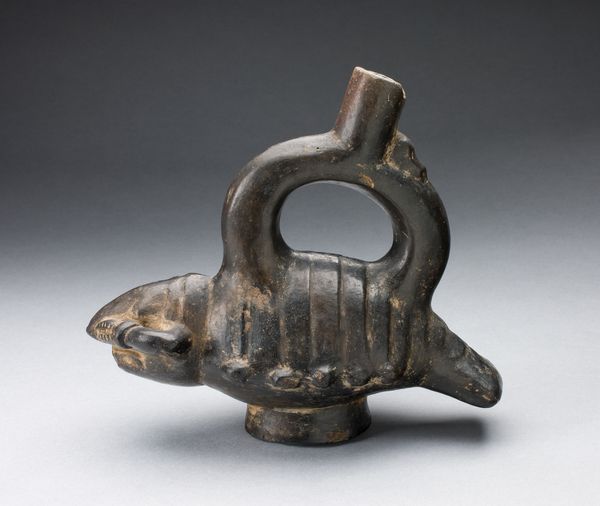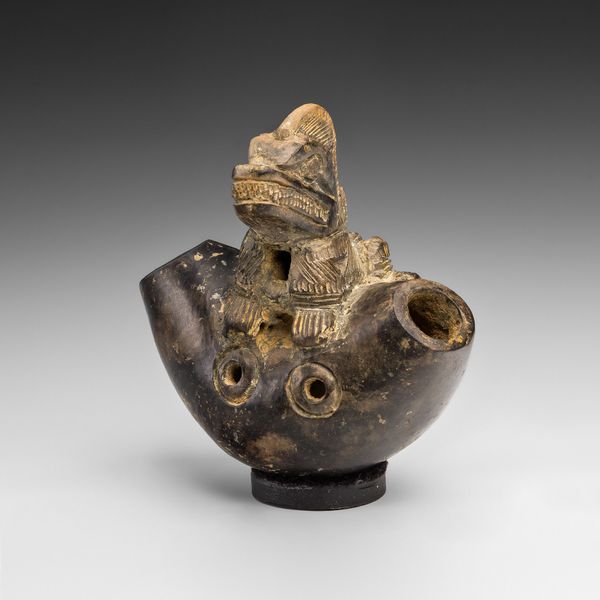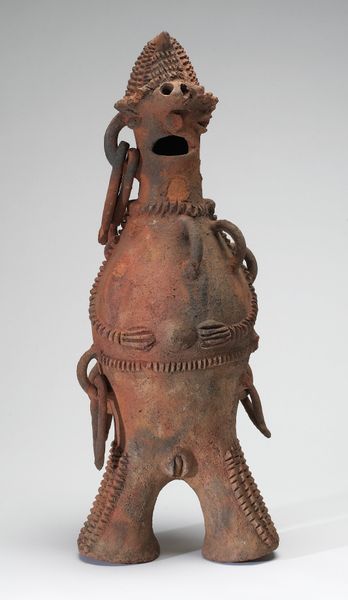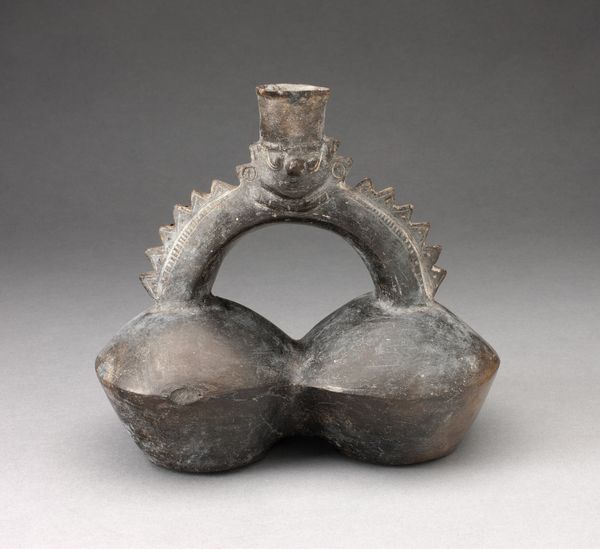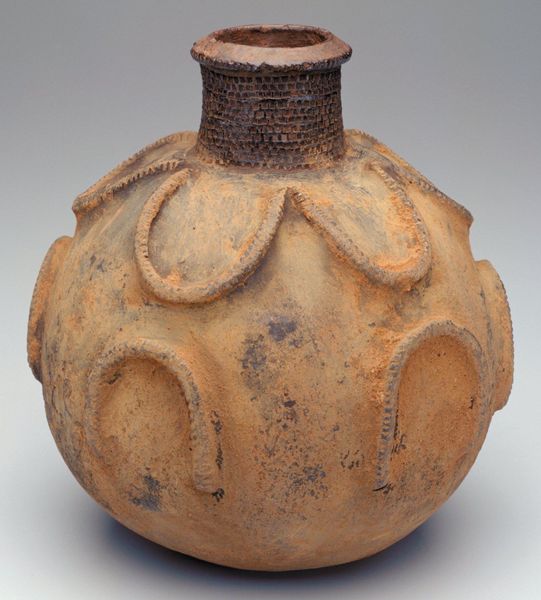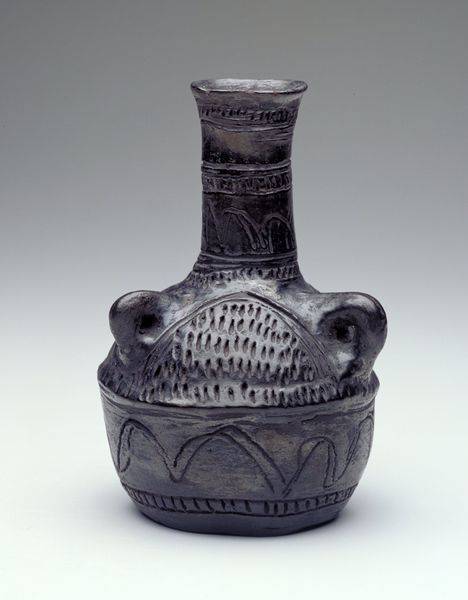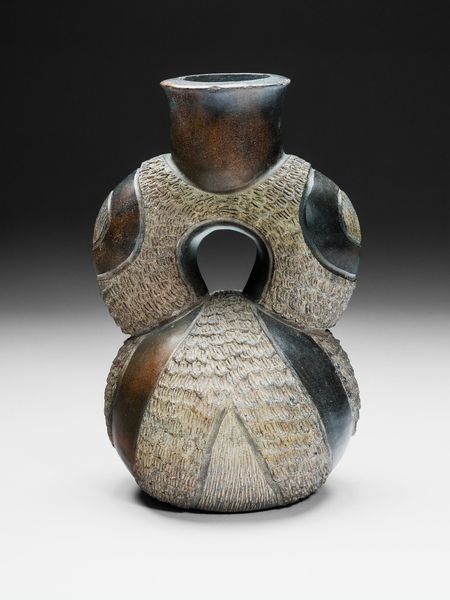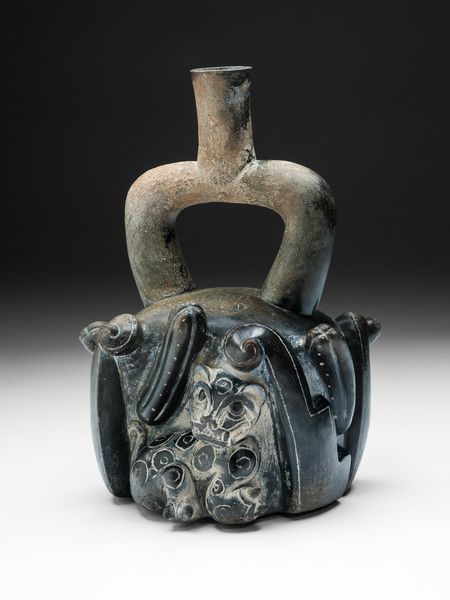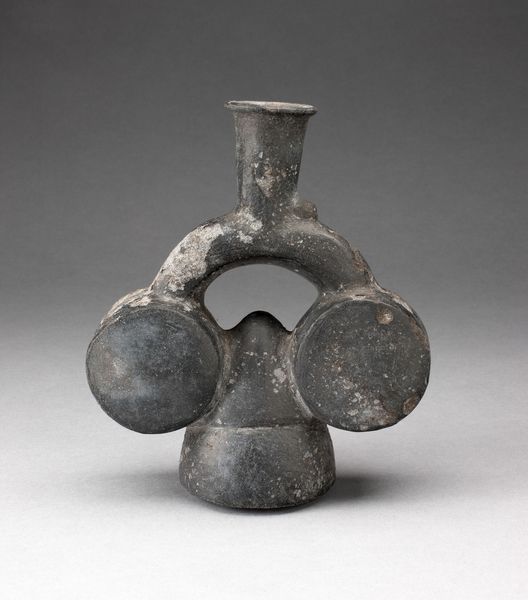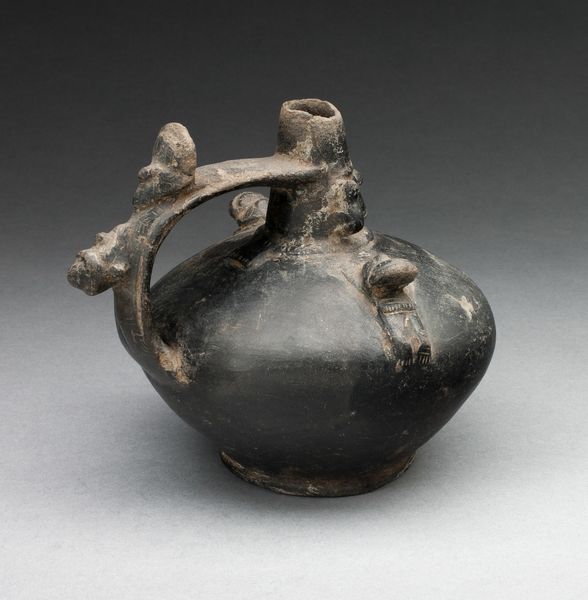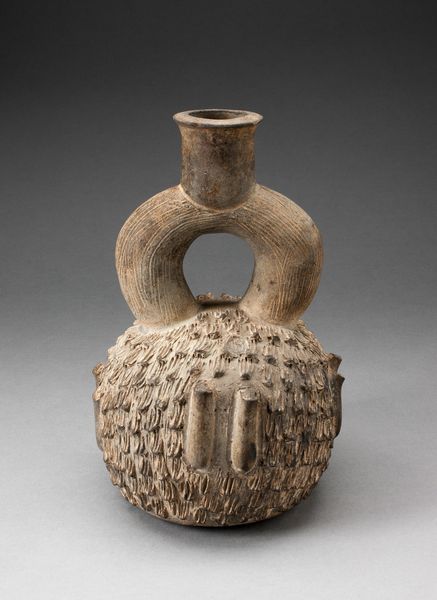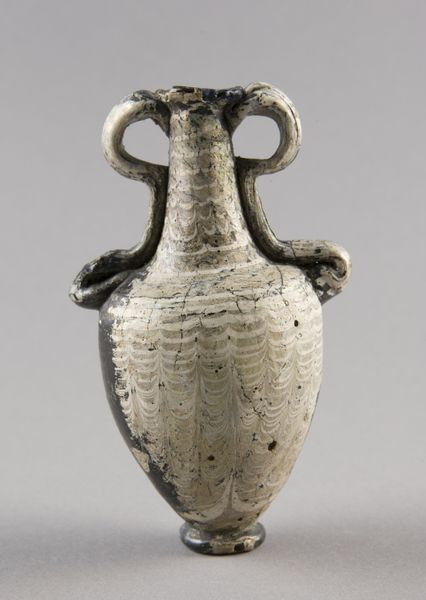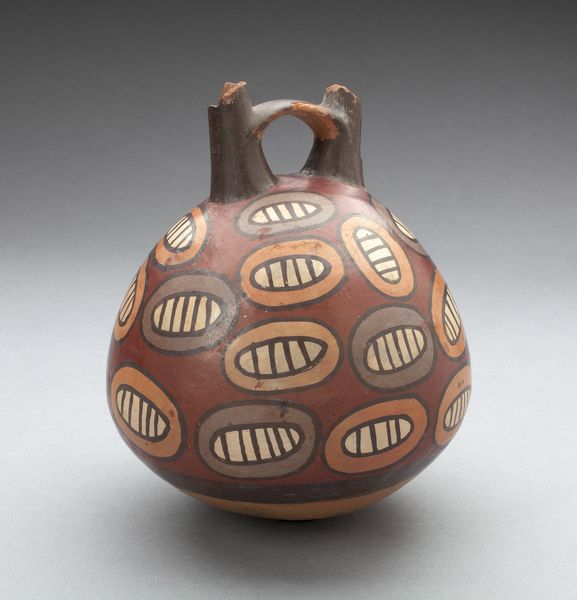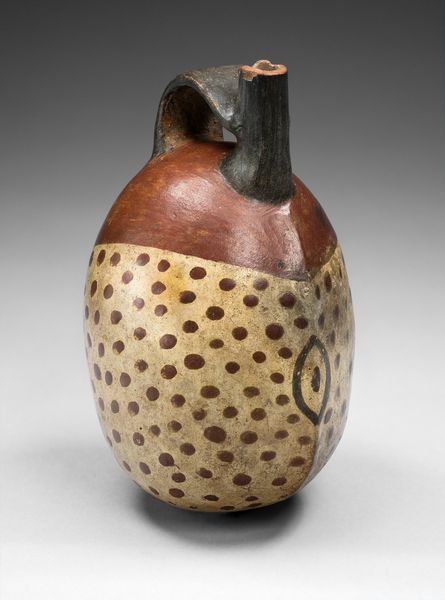
#
vessel
Dimensions: 9 x 4 3/4 x 4 3/4 in. (22.9 x 12.07 x 12.07 cm)
Copyright: Public Domain
This Vessel was made by the Chavín people, the exact date is unknown, but it now resides in the Minneapolis Institute of Art. The Chavín civilization, which flourished in the Andes from about 900 to 200 BCE, left a rich artistic legacy. This vessel embodies a convergence of utilitarian function and symbolic expression, which gives us a glimpse into the cosmology of the Chavín people. The spikes adorning the surface invite a tactile experience, while the color shifts across the vessel hint at the transformative potential of ritual practices. The vessel transcends its material form to become a conduit for spiritual connection. While the artists are anonymous, they maintained traditional representations of powerful animals. This choice emphasizes the vessel's role as a cultural artifact. It reflects the intersection of aesthetics, belief, and daily life in Chavín society.
Comments
minneapolisinstituteofart about 2 years ago
⋮
The extraordinary biodiversity of the Amazon and Andes regions of South America and the active trade networks between the regions provided a near endless source of natural subjects for artists. Plants and animals were common Chavin ceramic subjects; artists often abstracted or stylized natural forms to create elegant, tactile vessels. This pattern and form of this highly-textured spiny vessel may have been inspired by fruit such as cherimoya or guanaba.
Join the conversation
Join millions of artists and users on Artera today and experience the ultimate creative platform.
